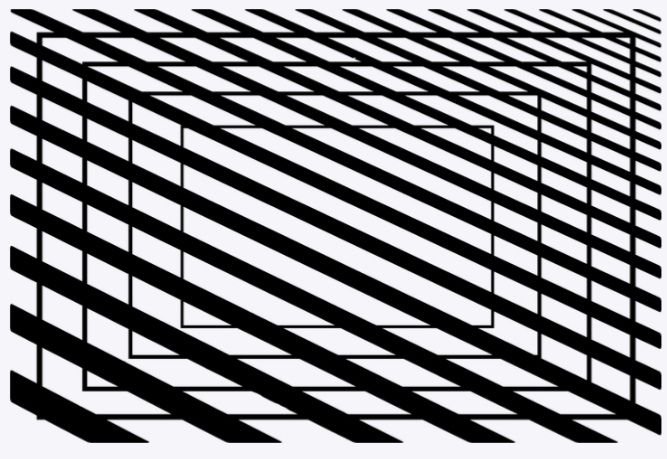Reflections on some statements of Al-Allamah Rabee Bin Hadi al-Mad’khali 90
In The Name of Allāh, The Most Merciful, The Bestower of Mercy.
It is necessary to bring together the disparager and the disparaged, the refuter and the refuted, and to seek judgment in the (presence) of the scholars. It is not permissible to pass judgement on the refuted and disparaged person in absentia:
This is one of the Shubuhaat (1) of Adnan Ar’ur, when he used to demand (or request) from Shaikh Rabee, may Allāh have mercy upon him, to seek judgement (together with him) in the (presence) of Al-Allamah Al-Uthaymin, may Allāh have mercy upon him, concerning the Mukhaalafaat and Dalaalaat (2) for which he was criticised. He used to falsely accuse the scholars – who denounced him due to the observations they made regarding his falsehoods – that they pass judgment on him in absentia, meaning before Al-Muhakamah (i.e. that in order to make a judgement against him, both him and his opponent must be present in the presence of a scholar), and according to him, this is not permissible.
Al-Allamah Rabee Al-Mad’khali, may Allāh have mercy upon him, was asked, as found in his treatise “Dar Baghi Adnan” about this Shubha (3): “What is your opinion regarding Adnan’s speech as follows: ‘Among the matters that are universally agreed upon by the nations- Jews, Christians, and Zoroastrians – is that during judicial rulings and judgement, it is incumbent to hear from both parties. It maybe that he did not intend this, maybe he did not desire it, maybe it is a slip of the tongue, maybe it is a Shami expression which is different from a Saudi, maybe it is a Maghribi expression which is different from a Mashriqi. (4) When a man rejects Niyyah [i.e. intention which is a requirement in acts of worship] in Islam, then a judgment is issued without hearing the other side, (leading to accusations of) disbelief; how is (this) disbelief? Meaning, what is its ruling (i.e. the ruling on rejecting Niyyah in islam)? A disbeliever! So how can one judge, be pleased with and accept that a person has rejected Niyyah in Islam merely based on a phone call from an unknown person. Masha-Allah, masha-Allah, (is this) based on knowledge and piety; masha Allah, based on understanding?! Someone on the phone from Europe is talking about a well-known person who is a pioneer in Dawah and lives among them, so what prevented them from verifying this issue?
Shaikh Rabee, may Allāh have mercy upon him, replied:
Indeed, we are profoundly flabbergasted by this man’s hotchpotch in his speech about the scholars, his belittling of them and his self-aggrandizement in this instance. We are profoundly flabbergasted that he conflates judicial rulings with fatwas, so, at times considering their responses as fatwas and at other times as judicial decisions. This is a strange hotchpotch and an atrociously flawed argument on his part. Sadly, he has placed himself in the position of mentoring senior scholars- members of the Council of Senior Scholars- who have devoted their lives to knowledge, fatwas, and judiciary rulings. They know what is required of them when a questioner asks them questions and when they issue rulings. In any case, it can be understood from his speech (i.e. Adnan) regarding judicial rulings that it is not permissible to issue rulings on someone who is absent under any circumstances.
This speech is false. There are numerous situations where a judgment can be made on a person who is absent and it is not a condition that he should be present, nor is a judge obliged to hear from both parties. This matter is well-established and its proof is that Hind bint Utbah said to the prophet Muhammad, peace and blessings of Allāh be upon him, “Indeed, Abu Sufyan is a stingy man and he does not give us what suffices me and my children, can I take from his wealth?” He (i.e. the prophet) said: “Take from his wealth that which suffices you and your children”. [Al-Bukhari 5364 and Muslim 1714]
He did not say: “Where is Abu Sufyan? Where is he, bring him to me so that he hears this speech?” Allāh’s messenger, peace and blessings of Allāh be upon him, passed a judgement on him while he was absent. He allowed this woman – the wife of Abu Sufyah – to take from his wealth even without his consent. This is a ruling on an absent person. In the Mad’habs of Ahmad, Shafi’i, and Malik, and other than them among the scholars of the Ummah, is that in matters regarding the rights of the people and mutual dealings, it is permissible to make a judgement on the one who is absent.
Here, I reference what Al-Bukhari has stated. He said: “Chapter: Judgment on the one who is absent” with his chain of narration to Urwah, from Aisha that Hind said to the Prophet, peace and blessings of Allāh be upon him, “Indeed, Abu Sufyan is a stingy man and I am in need from his wealth”, so he said: “Take what suffices you and your children in a reasonable manner”. Al-Hafidh (i.e. Ibn Hajr) said about the statement “(Judgement) on the one who is absent”, meaning, (concerning) the rights of the children of Adam, but not Allāh’s rights, based on the consensus (of the scholars that this applies) even if evidence is established against an absent person regarding theft, for instance, financial judgments that is other than the judgment of cutting the hand. Ibn Battal said: “Malik, Al-Layth, Al-Shafi’i, Abu Ubaid, and others have permitted judgments on the absent person”.
Ibn Abd al-Barr said: “the comprehensive nature of judicial rulings in lawsuits”. Judgment can be made against an absentee with regards to rights, mutual dealings, debts, and all rights, with the exception of real estate because no judgement is made about it, except if the person’s absence is prolonged and it harms his opponent. If this becomes the case, a judgement is made. This is the Mad’hab of Malik. When it is the case that it is permissible to pass a judgment on a dead person, judgement on an absent person is even more permissible. Also, in the Mad’hab of Imam Ahmad, judgement on an absent person is permissible”. The author of “Al-Mughni” reported a difference of opinion on this matter, then he (concluded that what) carries more weight is the permissibility (of passing judgement on an absent person) and he used as evidence the hadith of Aa’isha in the story of Hind, while also pointing out contradictions in Abu Hanifa’s stance.
Adnan neither knows the value of the scholars nor the value of knowledge, nor does he know the conditions of Fatwa. Despite this, he behaves arrogantly towards the scholars and makes them the most ignorant people. So, all the nations make it a condition with regards to judicial rulings and lawsuits that the judge should hear from both parties; all the nations, in Adnan’s view, are acquainted with this, Jews, Christians, and Zoroastrians, while these scholars are ignorant of these matters that are known to the nations of disbelief.
Then the questioner said: May Allāh protect you. What is your view on his earlier statement where he said that perhaps it wasn’t intended that way, it could have been a slip of the tongue, or that the expression might differ between Syrian and Saudi dialects, or even between Moroccan and Eastern expressions, thus, one passes a judgement without hearing the other side in the matter of disbelief. How can that be considered disbelief, meaning, when a man rejects the Niyyah in Islam?
Shaikh Rabee- may Allāh have mercy upon him – responded: This man has elevated himself and his speech to a status unprecedented by anyone else. Scholars listen to the speech of a scholar or someone other than him, clarifies for him that it is a mistake, and then criticises. (For instance), one narrates a hadith and makes a mistake, he (another person) says: “So and so has made a mistake, so and so has misperceived, so and so makes a lot of mistakes, so and so narrates munkar hadith”. He does not summon this narrator and say: “Maybe you intended such and such; inform me of what you intended, perhaps you intended such”. (Rather), he passes judgement on his speech that it is an error. He reads a book, then finds an error in it, he authors volumes to debate this scholar regarding what he considers as mistakes, and none says that (one uses) this method mentioned by Adnan.
Al-Shafi’i engaged in discussions with Malik and Muhammad ibn al-Hasan, the companion of Abu Hanifa, regarding statements they made and rulings they issued. No one said to him: “Why did you approach Muhammad ibn al-Hasan or why did you not engage in discussion with Malik during his lifetime. Why? Why? Why?” No one says this, except the ignorant and the dull-witted who utter the likes of this speech, and put forward such objections. The Salaf used to critique people regarding their beliefs, their statements, and their actions, and they considered this as part of enjoining good and forbidding evil. They would issue fatwas based on the statements they received, and no one says they did not summon the speaker and say, “What did you intend, this or do you intended such and such”.
An Excerpt from Juhud Al-Allamah Rabee Al-Mad’khali Fee Naqd Shubuhat Al-Hizbiyeen An Manhaj An-Naqd Inda Ahli As-Sunnah As-Salafiyyeen 165-170
[1] Shubuhaat: doubts or ambiguities that are made to resemble truth but are falsehood in reality
[2] Mukhalafaat: deeds, beliefs, or methodologies that are opposition to what is right in the divine legislation. Dalaalaat: deeds, beliefs or methodologies that are tantamount to misguidance in religious practice.
[3] Shubhah: the singular of Shubuhaat
[4] Shaam: includes countries like Syria, Lebanon, Palestine etc. Maghrib: includes Algeria, Libya, Morocco, Tunisia etc. Mashriqh: includes Egypt, Sudan, etc












